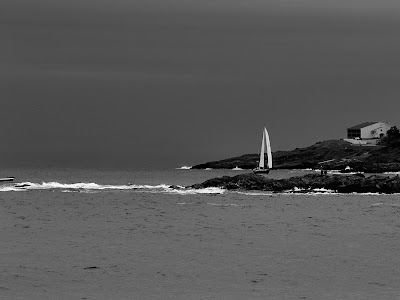AMDG.
“Ad Maiorem Dei Gloriam”
“To the Greater Glory of God.”
These four simple Latin words form the Jesuit motto. We frequently use the acronym AMDG at the beginning or end of a letter. The AMDG logo, the four letters resting in the arms of a cross, is engraved on the vow ring my mom gave me twenty-five years ago. Ad Maiorem Dei Gloriam explains everything about the Society of Jesus and its men when it is working at its best.
Ignatius of Loyola was a complex man. Born into minor Spanish nobility in 1491, he spent most of his youth learning to be a soldier and a member of the royal court. He was vain and liked to wear flattering and form-fitting clothes. Though poorly uneducated, he could read and had very fine penmanship. At age twenty-two the hot-headed Basque soldier was seriously injured while leading his overmatched men in the Battle of Pamplona. It was one of the most blessed injuries in the history of war.
While convalescing in the castle of Loyola he underwent a conversion experience and was gradually drawn in by the desire to do great things for God, to do all things AMDG; for the Greater Glory of God. It is a fascinating story.
One example of his drive and determination was obvious when he desired to enter the University of Paris in his mid-twenties. Because he had not had an adequate education he went back to the equivalent of junior high school to learn the Latin and Greek he needed to enter the University. Ignatius was charismatic.
Once at the University of Paris a group of men gathered around him to do the Spiritual Exercises that he worked out while in Manresa. Among these men were Francis Xavier and Peter Faber who are among the original nine companions when the Society of Jesus was established in 1540.
Ignatius wrote an enormous number of letters, was involved in writing the Jesuit Constitutions, missioning men throughout the world, and answering hundreds of questions as the Society grew. Indeed, he never again left Rome, a bit of irony considering the travel histories of many of us.
A man who tried to put the best possible interpretation on what he was told times had to put his foot down firmly at times. Shortly after entering novices read the famous Letter on Obedience, a 4000 word missive that he wrote to young Jesuits in Portugal who were being rebellious.
Despite his ability as a founder and administrator it was the fruit of his prayer
that changed world history in ways that can never be overestimated. Despite the enormous demands of the rapidly growing Society, despite dealing with hostility
from other orders and the occasional pope, he was disposed to hear and contemplate the word of God in the midst of, and despite many, distractions.
His health was not good as a result of excessive penances and fasting that he undertook soon after his conversion, excesses which he later abandoned after realizing the damage he had done. He continued to pray and work without grumbling, always to the Greater Glory of God.
Ignatius dictated his autobiography reluctantly in response to the demands of his men. It is very short but very revealing and well worth the few hours needed to read it.
Ignatius died in 1556 at age 65. He had been named the first general of the Society in 1541 and was still holding that office at the time of his death.
Jesuits regularly pray several prayers attributed to Father Ignatius. I was introduced to one of these prayers shortly before entering when George Murray, SJ, MD asked “What’s my favorite prayer?” I admitted I had no idea. He spun his office hair around, pulled open a file cabinet, and unfolded a wrinkled paper that had been unfolded many times over the year. The Prayer for Generosity was the only thing on it.
"O Lord, teach me to be generous
To serve you as you deserve
To give and not to count the cost
To fight and not to heed the wounds
To toil and not to seek for rest
To labor and not to ask for reward
Save that of knowing I do your holy will."
St. Ignatius pray for us.
Photos are from Loyola, Spain in 2019.
Fr. Jack, SJ, MD















%20-%20Version%202%2017-37-32-358.jpg)








